
Artificial Intelligence Behaviour Monitoring Solution
At a glance
- Maximum amount : 1,000,000 $
- Open Date : July 30, 2024
- Closing date : September 10, 2024
- Public administration
- Canada
- For-profit business
- All revenue ranges
- 499 employees maximum
- Indigenous Peoples
- Rural or Northern Residents
- Startups
Overview
The RCMP is seeking an Artificial Intelligence Behaviour Monitoring Solution to monitor and alert personnel to concerning behaviors and medical distress in detainees within holding cells. This program, open to small Canadian businesses, offers funding for proof of feasibility (Phase 1) and prototype development (Phase 2) to develop non-intrusive, sensor-based systems that enhance detainee safety and adhere to privacy regulations.
Activities funded
This grant supports the development and deployment of innovative artificial intelligence solutions for behavioural monitoring in RCMP holding cells. The projects aim to enhance public safety and operational efficiency through advanced monitoring technologies.
- Research and development of AI solutions to detect and alert concerning and destructive behaviours in custody.
- Prototype development of sensors that can monitor vital signs and trigger alerts for medical distress.
- Deployment of non-wearable, tamper-resistant sensors within holding cells that comply with privacy and safety standards.
- Implementation of user-friendly interfaces for easy navigation by RCMP personnel with limited technical skills.
- Development of AI systems that can locally record and retain data for post-incident analysis.
- Creation of scalable solutions adaptable for transportation and varied custody environments.
Eligibility
Eligibility for this grant is determined by specific requirements related to the applicant's profile and activities.
- The applicant must be a small business.
- The applicant must be a for-profit entity.
- The applicant must be incorporated in Canada, either federally or provincially.
- The applicant must have 499 or fewer full-time equivalent (FTE) employees.
- Research and development activities must take place in Canada.
- 50% or more of the applicant's annual wages, salaries, and fees must currently be paid to employees and contractors who spend the majority of their time working in Canada.
- 50% or more of the applicant's FTE employees must have Canada as their ordinary place of work.
- 50% or more of the applicant's senior executives (Vice President and above) must have Canada as their principal residence.
Who is eligible?
This contract challenge is exclusively open to small businesses that meet specific Canadian incorporation and operation criteria, focusing on innovative development within the specified challenge context.
- The challenge is open to small businesses that are for-profit.
- Applicants must be incorporated in Canada, either federally or provincially.
- Eligible small businesses should have 499 or fewer full-time equivalent employees.
- Research and development activities must take place within Canada.
- At least 50% of annual wages, salaries, and fees should be paid to those working mainly in Canada.
- 50% or more of full-time equivalent employees must ordinarily work in Canada.
- At least 50% of senior executives must reside principally in Canada.
Who is not eligible
This grant does not specify exclusions for any particular types of companies or industries based on their status or main activity. The eligibility criteria focus on qualifications needed to apply rather than restrictions.
Eligible expenses
This grant aims to develop innovative technological solutions for monitoring detainee behavior and vital signs to enhance safety and response measures in RCMP holding cells. Eligible projects focus on the development of new AI monitoring systems and the enhancement of existing technologies for use in this context.
- Development and implementation of AI-based behavior monitoring systems for detainees.
- Enhancement of current sensor technologies to detect destructive, self-harming, and medical distress behaviors.
- Integration of data recording systems that comply with RCMP data management policies.
- Implementation of non-intrusive, contactless monitoring solutions in detention environments.
- Creation of user-friendly interfaces for RCMP personnel use.
Eligible geographic areas
This opportunity is designated for small businesses incorporated in Canada and carrying out significant operations within the country. Eligible companies must demonstrate their incorporated status at either the federal or provincial level to ensure compliance with criteria.
- Businesses incorporated within Canada's federal framework.
- Companies incorporated provincially across all Canadian provinces and territories.
Selection criteria
The evaluation and selection of projects for this grant are based on specific criteria to ensure proposals align with the challenge's objectives, including mandatory criteria (pass/fail) and point-rated criteria with allocated scores.
- Scope: Clarity on how the proposal addresses all essential outcomes in the Challenge Notice. (Mandatory – Pass/Fail)
- Current Technology Readiness Level (TRL): Justification of the existing TRL based on prior research and development activities. (Mandatory – Pass/Fail)
- Innovation: Demonstrating the proposal meets ISC definitions of innovation. (Mandatory – Pass/Fail)
- Advance on State of the Art: Competitive advantages and technological improvements over existing solutions. (Mandatory – Pass/Fail, with points: 0, 5, 12, 20)
- Additional Outcomes: Addressing Additional Outcomes in the Challenge Notice. (Point-Rated: 0, 3, 6, 10 points)
- Science and Technology Risks: Identification and mitigation of potential S&T risks in development phases. (Point-Rated: 0, 5, 10 points)
- Project Risks: Identification and mitigation of project-specific risks, including HR, financial, and IP risks. (Point-Rated: 0, 5, 10 points)
- Project Plan: Feasibility and detail of the development project plan. (Point-Rated: 0, 10, 20 points)
- Implementation Team: Required skills and experience of the team to execute the project plan. (Point-Rated: 0, 10, 20 points)
- Inclusivity: Policies and strategies for supporting under-represented groups in R&D. (Point-Rated: 0, 10, 20 points)
- Financial Controls: Adequate financial management and oversight strategies. (Point-Rated: 0, 5, 10 points)
- Phase 2 Overview and Plan: Overview of the prototype development plan for Phase 2, if applicable. (Point-Rated: 0, 5, 10 points)
- Commercialization Strategy: Plan for bringing the solution to market after Phase 2. (Point-Rated: 0, 5, 10 points)
How to apply
Eligibility Confirmation
Register an Account
Access and Review Official Documents
- Log in to access the official solicitation documents and review all requirements.
- Refer to the Tender Notice on CanadaBuys specific to this challenge.
Application Preparation
- Decide whether to apply for Phase 1 (Proof of Feasibility) or Phase 2 (Prototype Development) based on your solution's Technology Readiness Level (TRL).
- Prepare your proposal addressing the challenge’s problem statement and demonstrating how it meets the essential outcomes.
- Include all necessary research and development data to support your current TRL.
Complete Challenge Stream Submission Form
- Complete and submit the Challenge Stream Submission Form via the CanadaBuys platform.
- Ensure all sections of the form are filled out accurately and fully.
Proposal Submission
- Submit your completed proposal through the CanadaBuys platform before the deadline.
- Make sure to submit the application by September 10, 2024, 14:00 Eastern Time.
Confirmation and Record Keeping
- Receive a confirmation of submission through the platform.
- Keep a record of your submission for future reference.
Additional information
Key information about the grant includes details on travel requirements and communication protocols for meetings.
- Travel to type B wood built RCMP holding cell in remote rural areas of Canada, possibly fly-in locations.
- Travel to type A non-combustible built RCMP holding cell in urban areas outside Ontario and Quebec.
- Kick-off meeting will be conducted by telephone or videoconference.
- Progress review meetings will be conducted by telephone or videoconference.
- Final review meeting will be conducted by telephone or videoconference.
Frequently Asked Questions about the Artificial Intelligence Behaviour Monitoring Solution Program
What is the Artificial Intelligence Behaviour Monitoring Solution?
How much funding can be received?
What is the deadline to apply?
Who is eligible for the Artificial Intelligence Behaviour Monitoring Solution program?
What expenses are eligible under Artificial Intelligence Behaviour Monitoring Solution?
Who can I contact for more information about the Artificial Intelligence Behaviour Monitoring Solution?
Where is the Artificial Intelligence Behaviour Monitoring Solution available?
More programs like this

ISED — Artificial intelligence (AI)
Innovation, Science and Economic Development Canada (ISED)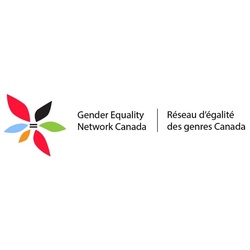
Equality for Sex, Sexual Orientation, Gender Identity and Expression Program
Women and Gender Equality Canada (WAGE)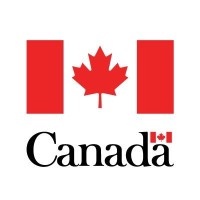
Rail Safety Improvement Program (RSIP) - Research and Education Component
Transport Canada (TC)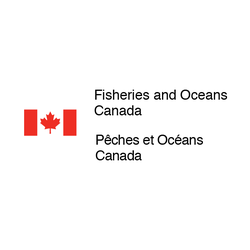
Canada Nature Fund for Aquatic Species at Risk (CNFASAR)
Fisheries and Oceans Canada (DFO)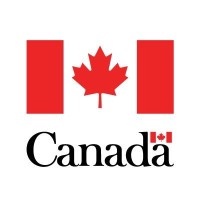
Artificial Intelligence for Canadian Energy Innovation
Natural Resources Canada (NRCan)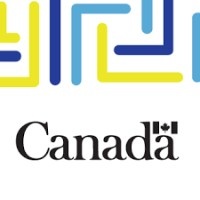
Advancing Accessibility Standards Research
Accessibility Standards Canada (ASC)
Small Craft Harbours Abandoned and Wrecked Vessels Removal Program
Fisheries and Oceans Canada (DFO)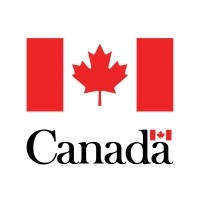
Memorial Grant Program for First Responders
Public Safety Canada (PSC)
Collaborative Science, Technology and Innovation Program - Collaborative R&D Initiatives
National Research Council Canada (NRC)